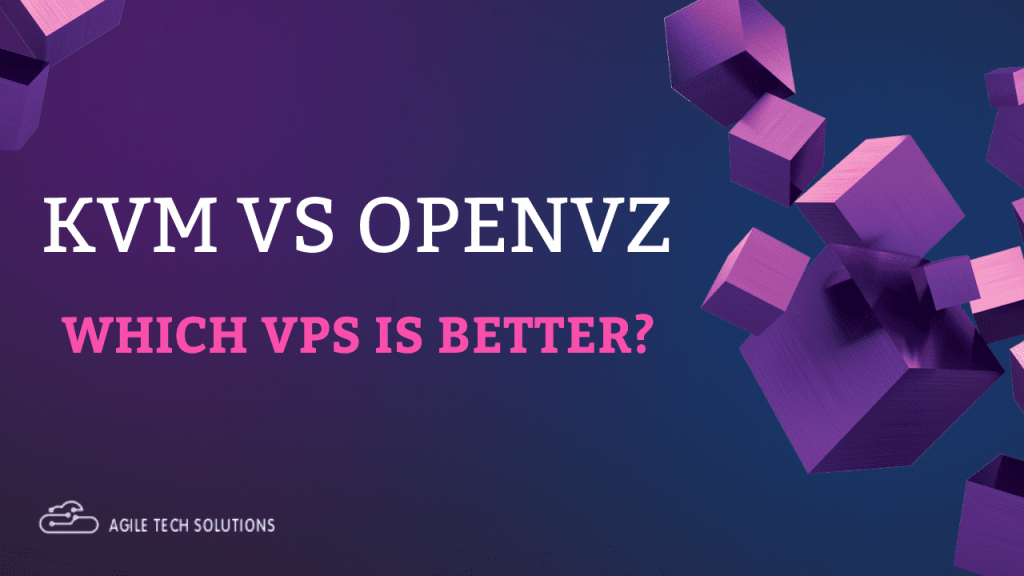
Server virtualization has revolutionized the way businesses and individuals manage their online presence. With the increasing demand for scalable and efficient hosting solutions, VPS virtualization has emerged as a popular choice for many. But what exactly is server virtualization, and how does it work? In this blog post, we will explore the concept of server virtualization and compare two popular virtualization technologies, KVM and OpenVZ, to determine which one is better suited for your hosting needs. To begin with, let’s understand what server VPS virtualization is all about.
Server VPS virtualization is a method of partitioning a physical server into multiple virtual servers, also known as virtual private servers (VPS) or virtual machines (VM). Each virtual server acts as an independent entity with its own dedicated(or shared) resources, including CPU, RAM, disk space, and bandwidth. This allows for better control over your hosting environment, as you have the freedom to install and configure software applications as per your requirements.
Now, let’s delve into the two leading VPS technologies in the market – KVM and OpenVZ. Both KVM and OpenVZ offer virtual server environments, but they differ in their approach to virtualization.
KVM, also known as Kernel-based Virtual Machine, is a hardware-assisted virtualization technique that utilizes the full capabilities of the host server’s hardware. It emulates a complete operating system, allowing you to run any operating system, including Windows and various Linux distributions, on your virtual server. KVM provides excellent performance and security, as each virtual server runs in its own isolated environment.
Benefits of KVM:
- Full virtualization: KVM offers full virtualization, allowing you to run any operating system without any modifications.
- Performance: KVM provides near-native performance, making it ideal for resource-intensive applications.
- Security: Each KVM virtual server operates in an isolated environment, ensuring enhanced security.
Drawbacks of KVM:
- Resource-intensive: KVM requires more system resources compared to OpenVZ, making it less suitable for smaller-scale deployments.
- Complexity: Setting up KVM can be more complex, especially if you are not familiar with Linux and virtualization concepts.
On the other hand, OpenVZ is a container-based virtualization technology that operates at the operating system level. It shares the host server’s kernel and resources among multiple virtual servers, known as containers. This results in efficient resource utilization and better performance.
Benefits of OpenVZ:
- Lightweight: OpenVZ requires fewer system resources, making it ideal for smaller-scale deployments or environments with limited resources.
- Easy management: OpenVZ offers easy management and faster deployment of virtual servers.
- Efficient resource utilization: OpenVZ efficiently utilizes system resources by sharing the host server’s kernel and libraries among containers.
Drawbacks of OpenVZ:
- Limited operating system support: OpenVZ supports only Linux-based operating systems, making it less suitable for those who require Windows-based virtual servers.
- Less isolation: As OpenVZ containers share the host server’s kernel, a security vulnerability in one container can potentially affect others.
- Oversold: It is fairly easy to oversell OpenVZ VPS so they mostly are which decreases the performance. But it varies from provider to provider.
So, which VPS is better – KVM or OpenVZ?
The answer depends on your specific requirements and priorities. If you need the flexibility to run any operating system and require enhanced performance and security, KVM is the way to go. On the other hand, if you have limited resources, prefer easy management & have a tight budget, and only require Linux-based virtual servers, OpenVZ may be a better choice.
Check out Agile Tech’s Premium KVM VPS Plans Here: https://www.agiletechsolutions.co.uk/vps-hosting
In conclusion, server VPS virtualization offers numerous benefits for businesses and individuals seeking scalable and efficient hosting solutions. When choosing between KVM and OpenVZ, carefully consider your requirements, budget, and technical expertise to make an informed decision. Both technologies have their own advantages and drawbacks, so choose the one that aligns best with your needs.




